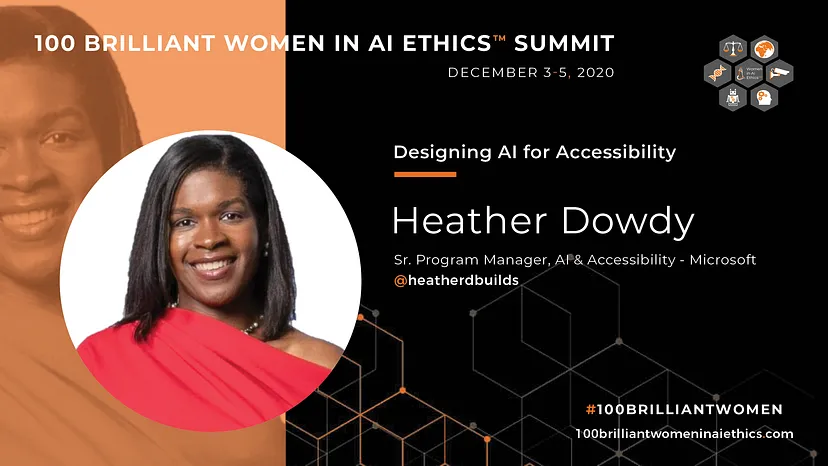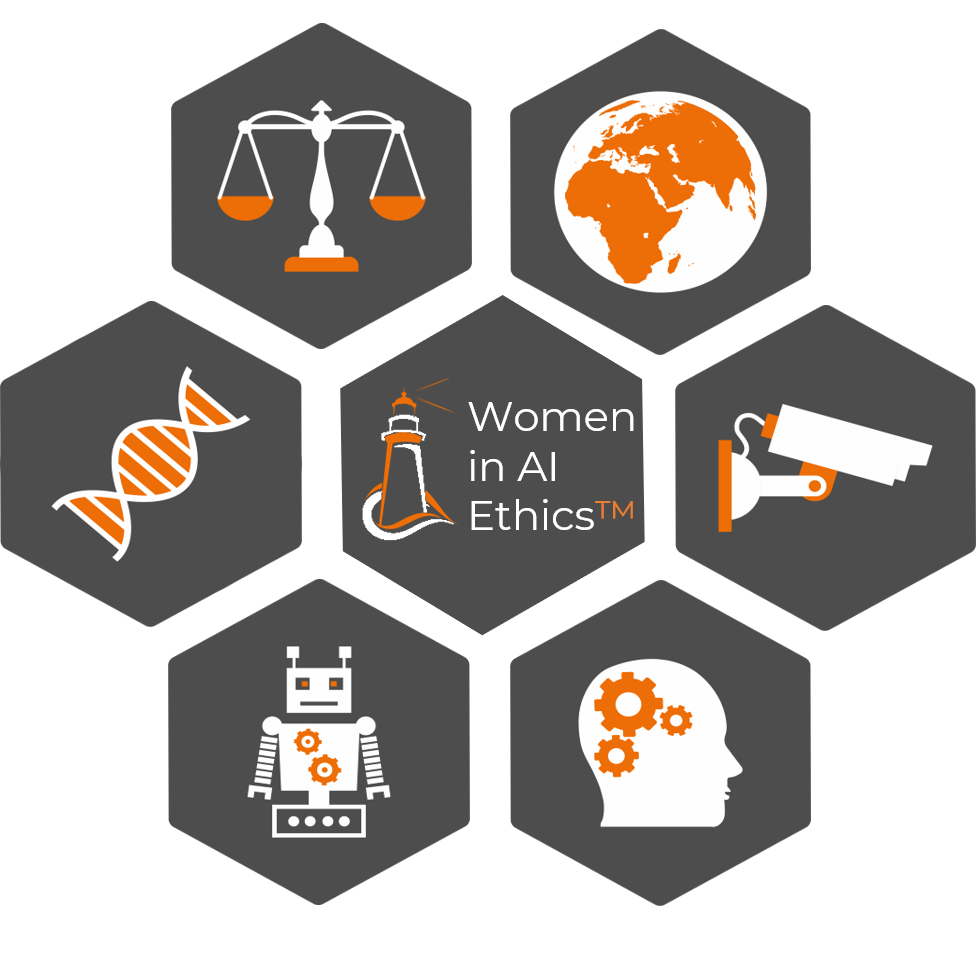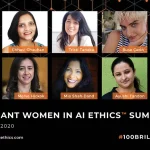
Heather Dowdy Sr. Program Manager, AI & Accessibility at Microsoft
If you have never heard about Heather Dowdy, you are about to discover the fascinating and inspiring story of a woman with a deeply rooted life purpose; to make the world a more inclusive and accessible place.
Heather Dowdy grew up in a rough area at the intersection of disability and race. Yet anyone who takes a closer look at her childhood would think that this is quite an understatement. This reflects a sense of humility and selflessness that immediately showed in Heather Dowdy’s personality when we start to listen to her story.
In her own words:
“I was born to be an ally. I was born to amplify the voice of those who are often overlooked because of their different abilities”
As the oldest daughter of deaf parents, Heather spent her childhood in the inner city of Chicago. At 6 months, she started to learn sign language in order to communicate with her parents and from a very young age her identity was shaped by the experience and the struggles of her community to fit in. As she recalled, the black community would first see the disability in a black-deaf person, when the disable community would first see the race in black-deaf person. This early experience was decisive in her choice to be active and help those who were not represented or face barriers to have a seat at the table. It is also inspired by her environment that Heather later out found how she would make an impact. Growing up surrounded by many gadgets and technology that help her family in their daily life, she figured out she would become an engineer to invent tools to help people.
With this goal in mind, Heather decided to go to college but becoming an engineer was not an easy road. Heather was discouraged by the Dean of the electrical engineering school who just by looking at her, told her she would never become an engineer, she advised Heather to major in Caribbean studies instead. Shocked by what she heard; Heather went to report the Dean ‘statement to the minority engineering department. However, unlike what she expected, the head of the department who was a black man did not show any empathy, he also questioned her ability to become an engineer, this time it was because of her gender.
“Even today, I remind myself that for the few people that have something negative to say, there are a lot more that will support you. It is also really important to be centered on your why”
Being rejected based on stereotypes was crushing and especially since this was in complete contradiction with the education that Heather received from her parents.
Her parents had always taught her to be first known for her intrinsic value before anything else. As far as she remembered, in school many of her friends and teachers completely ignored Heather’s parents were deaf, it was not hidden but as her Dad told her, he did not want their situation to inspire self-pity, people should get to know her first.
Despite the discouragements and the harshness of her Deans, Heather kept her grit. When I asked how she processed the negative feedback and managed to overcome the situation, she remembered she was driven by her passion to help disabled people. She knew her goal was bigger than herself and engineering would open doors for her. She also recalled she had her best friend who also wanted to be engineer and faced the same discrimination but believed as hard as her that they would make it. Until today Heather keeps reminding herself that for every one or two people who don’t believe in her ability, she has many more on her side. Remember your support system and keeping your goal in mind, are probably the best advices Heather would give to young girls and boys aspiring to embrace a career in a field where they would be perceived as outsiders.
“AI allows me to talk about the future. I want to highlight and respect the past, but I also want people to move towards change.”
Today Heather is an accomplished and passionate engineer. Technology and AI in particular are her best allies to make the world a more accessible place. This comes with some challenges; Heather reminds that technology is as biased as people who are making it, so one cannot expect that something created by humans would act differently from human beings. However, AI is an emerging world, and this is exciting; in AI, Heather sees an opportunity to build a more inclusive world for everyone. People with disabilities or in marginalized communities are used to overcoming barriers and can figure out how to find a solution, this is at the core of engineering and problem solving, this makes them a strength in a team. Of course, safeguards are necessary to ensure that the data collected is treated fairly and ethically. The data privacy issue is a key challenge when thinking of solutions for people with disabilities: on one hand, you need to be able to work with data that includes people with disabilities, on the other hand the data including their disability should not pinpoint to them just because they are disable.
I ended my conversation with Heather talking about the impact of covid-19 and her vision of the post-pandemic world. The pandemic has been extremely hard on the economic conditions of people with disabilities. One needs to bear in mind that before covid-crisis, in the United states, the unemployment rate of people with disabilities had been 50% for the past thirty years and in some countries in the world it was up to 80%. At the same time, the pandemic has presented an opportunity to think more inclusively as it increased the level of flexibility in the work environment, remote work is something that has been claimed for many years by people with disabilities because it allows them to work around their accommodation needs.
“At the end of the day, I am an educator at heart and technology is just the means that I use to educate people. It is really not the person who is not able, there is something in their environment that is not matched up with their ability.”
As a result of the pandemic, remote work has been implemented in a lot of places where it had not been considered before, this level of flexibility should last as it has proven to be beneficial to the entire workforce. It is important to reimagine a more inclusive future workforce, as Heather underlines, disabilities are often acquired in the course of life, many solutions that were initially thought for people with disabilities ended up being used by everyone, we all need a more inclusive world. In a nutshell, Heather Dowdy is resolutely optimistic about the future, designing inclusively is in fact what makes good design for the entire population and AI is really an opportunity to be able to achieve that.
This post has been updated with a link to the author’s profile:
Author: Caroline Jean-Pierre www.linkedin.com/in/caroline-jean-pierre
Women in AI Ethics™ is a fiscally sponsored project of Social Good Fund, a California nonprofit corporation and registered 501(c)(3) organization. We are funded by Lighthouse3, donations, and ticket sales. We can offer tax-deductible (donation receipts) for gifts & contributions, receive matching donations from corporate employers, and apply for grants awarded to recognized 501(c)(3) organizations.


